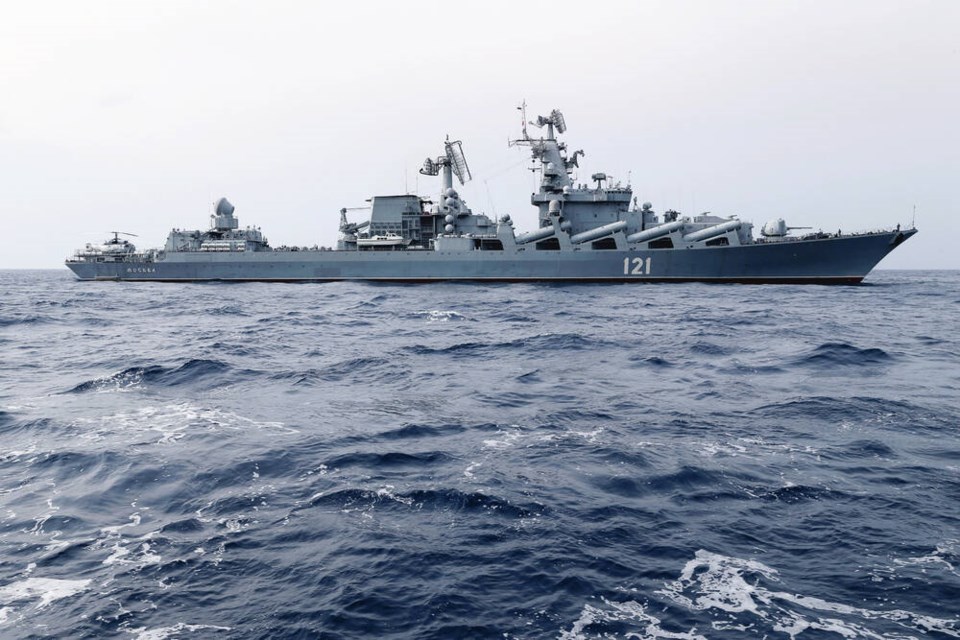As the war in Ukraine intensifies, some hard questions must be asked about how this might end.
We know what Russian President Vladimir Putin wants. He intends the destruction of Ukraine, the assimilation of its remnants into a revived Russian empire, and the demoralization of other bordering states such as Finland, Latvia and Estonia.
But what are our intentions? At the outset, the NATO bloc countries were motivated by humanitarian instincts — the desire to help Ukraine survive a brutal invasion.
Economic sanctions were imposed on Russia, and arms and funding were supplied to the Ukrainian military.
Canada went further, extending open arms to refugees fleeing the fighting.
But recent events have transformed the situation. What appeared likely to be a swift Russian victory has proved anything but.
And now we have American military sources claiming that real-time intelligence supplied to Ukraine has made possible the killing of at least a dozen Russian generals.
In addition, the U.S. has taken credit for supplying targeting assistance and weaponry that helped sink the Moskva, the flagship of Russia’s Black Sea fleet.
Arguably this takes the western democracies beyond merely helping Ukraine fend off the invasion. Targeting senior Russian officers feels like more than assistance: It has the aspect of direct involvement.
U.S. President Joe Biden has used confrontational language, stating that Putin must be removed from power. And his defence secretary, Lloyd Austin, has declared that “we want to see Russia weakened to the degree that it can’t do the kinds of things that it has done in invading Ukraine.”
So is the goal no longer just to stave off Ukraine’s defeat? Are we now talking regime change in Moscow, and the degrading of Russia’s military machine? This is a country with no recent history of a peaceful transference of power between regimes.
If so, this is more than a slap in the face for Putin, however much deserved. It could be taken as a signal that Russia is to be reduced to a second-class power, surrounded by countries that could, if they wished, bring about its downfall, or at the very least its humiliation.
In train with that, both Sweden and Finland are considering joining NATO, a major step away from their traditional policy of neutrality.
It may very well be argued that Putin has brought this on himself. Certainly he has.
Indeed, his actions have resulted in the complete opposite of whatever result he intended.
But how much of this can he tolerate; how much can his military advisers and the Russian people themselves put up with?
Russia’s leaders may not care if they are no longer loved. They may very much care if they are no longer feared.
The First World War began in somewhat similar circumstances. None of the combatants intended such an outcome.
But through lack of foresight and failure to consider how their actions would be read by others, they brought about exactly that result.
Are we walking down the same road here? The western democracies see their actions as a justified response to a display of naked power, inflicted on innocent women and children.
But scans of Russian media tell a different story. The message presented to that audience is that Russia is being encircled by hostile nations who mean her harm.
As the conflict grinds on, it may be time to seek a safer middle ground, before things get out of hand.
Canada could have a part to play here. Our traditional role in international diplomacy has been to mediate and act as an honest broker.
The prime minister recently visited Kyiv and assured the Ukrainian people that we stand with them.
He might also consider whether he could suggest the outlines of a peaceful resolution that wiser Russian heads could live with.



